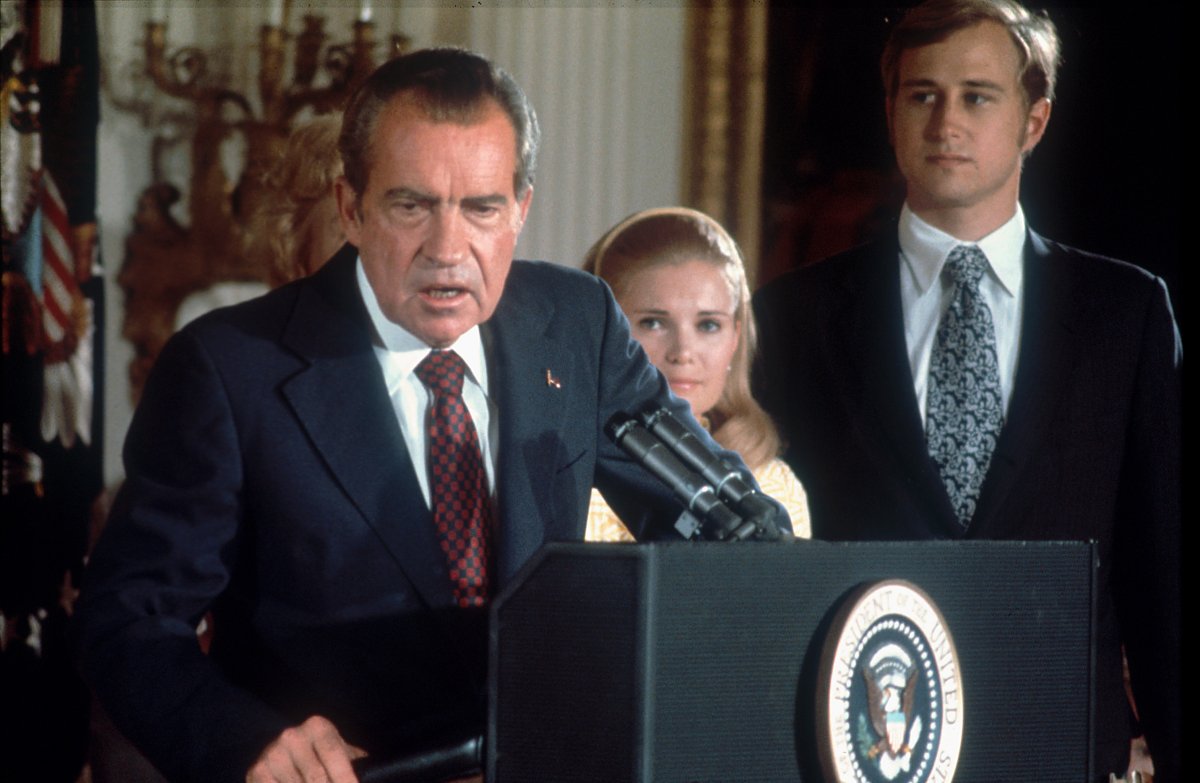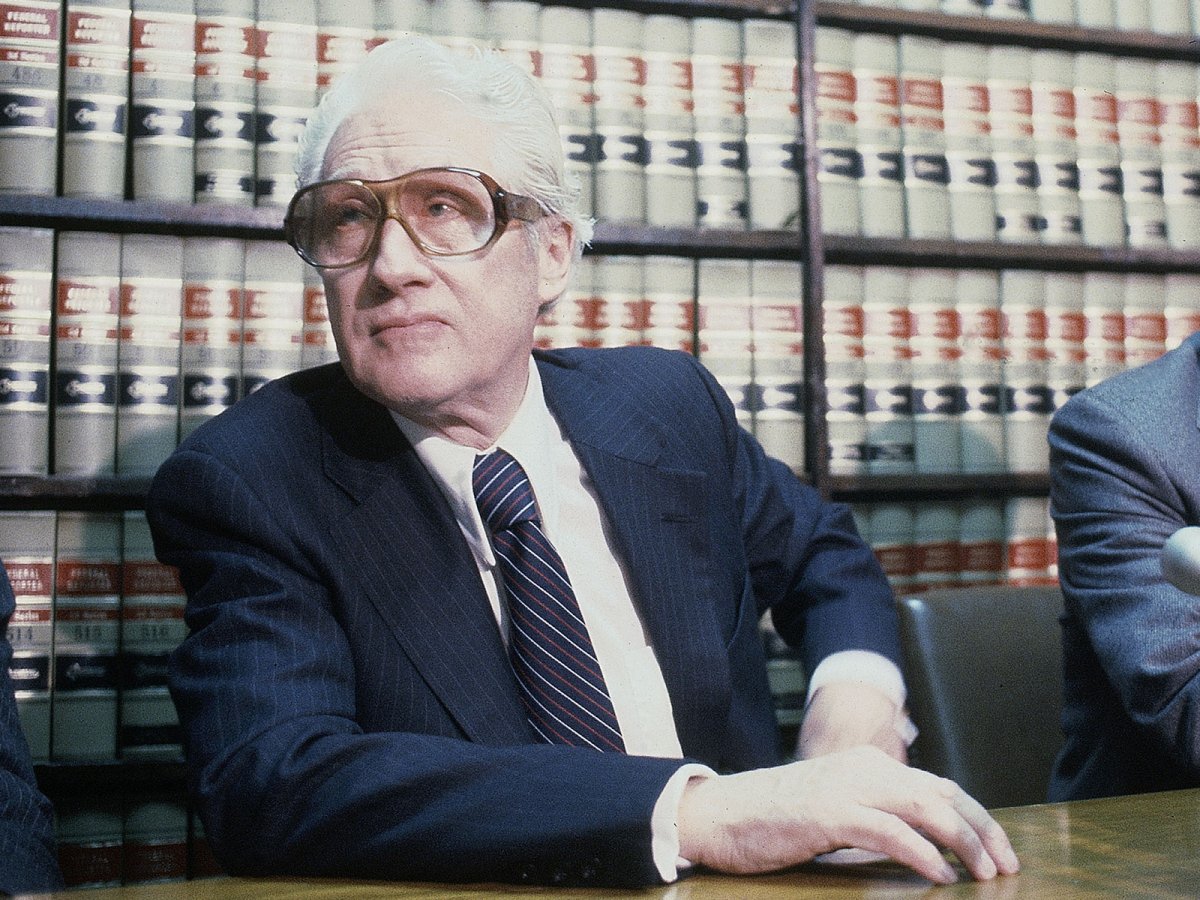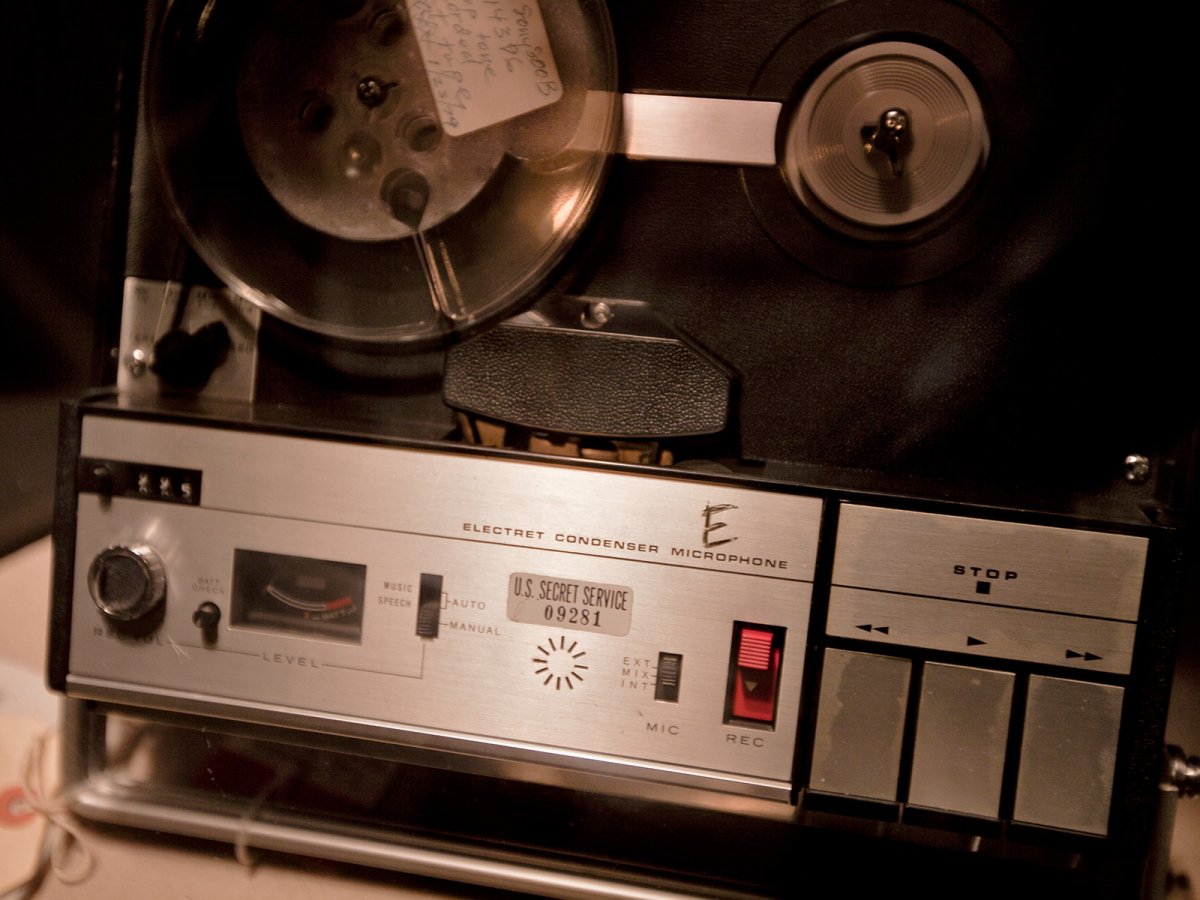Friday marks the 50th anniversary of the break-in at the Democratic National Committee (DNC) headquarters at the Watergate hotel and office building, an event that precipitated the downfall of Richard Nixon's presidency.
A team of men had previously broken into Washington, D.C.'s Watergate complex in May 1972 on the orders of G. Gordon Liddy, an FBI agent who worked on Nixon's reelection committee, to bug DNC telephones. However, it was the arrests of five men for breaking into the headquarters a month later that resulted in one of the most notorious scandals in U.S. history.

The Nixon administration, which was facing a contentious presidential election against the backdrop of the Vietnam War, denied involvement in the days after the arrests. Two reporters from The Washington Post—Bob Woodward and Carl Bernstein—soon began investigating and followed a criminal trail that led all the way to the Oval Office.
The Background
I'm not a crook.
The New York Times published the Pentagon Papers in the summer of 1971. This report from the Department of Defense detailed the history of U.S. involvement in Vietnam. Nixon was reportedly infuriated by the report being made public, and a special investigations team put together by the White House was nicknamed "the Plumbers" since their job was to stop future classified leaks. (Liddy was a member of this unit before he was moved to the reelection committee.)
The first major known job for the Plumbers was to break into the office of the psychiatrist for Daniel Ellsberg, a military analyst who leaked the Pentagon Papers to the Times. The team ultimately proved unsuccessful in finding information the White House could use to besmirch Ellsberg.
Months before the Times ran the Pentagon Papers, Nixon had already had a secret taping system installed in the Oval Office. This decision would later come back to haunt him.
The Break-In
Attorney General John Mitchell signed off on Liddy undertaking a plan to spy on the Democratic Party. Although polls found Nixon had a sizable lead against his opponent, George McGovern, the president reportedly sought more of an edge over his political rivals.
On June 17, five men—three Cuban exiles, one Cuban American and former CIA agent James McCord—were arrested after breaking into the Watergate. Film, bugging devices and thousands of dollars of cash were found on them. White House press secretary Ron Ziegler responded afterward that the president would not comment on a "third-rate burglary attempt." At a press conference a few days later, Nixon denied involvement.
Deep Throat
Three days after the break-in, Woodward met for the first time with an informant he called "Deep Throat," whose nickname came from a popular pornographic film at the time. The informant's identity remained secret until W. Mark Felt, the associate director of the FBI, revealed he was Deep Throat in 2005.
Woodward and Bernstein began doggedly reporting on the developing scandal with a story for the Post about a $25,000 check from Nixon's campaign that was found deposited in a bank account for one of the men arrested at the Watergate. They soon reported damning evidence on Mitchell and the links between Nixon aides and the break-in.
While the Post began unraveling the White House's involvement in the break-in, Nixon announced that an internal investigation had cleared him and his staff of any wrongdoing.

The Trial
Nixon won the 1972 election in a landslide, but a Watergate trial began in January 1973. Liddy and McCord were soon convicted on multiple charges, including conspiracy. A letter from McCord's that detailed a larger plan was revealed to the court in March, and White House counsel John Dean, whom Nixon eventually fired, began cooperating with a Senate select committee's investigation in April.
A Cover-Up Is Uncovered
McCord admitted payoffs were given to the Watergate burglars from the reelection committee, and the then-FBI director confessed to destroying documents related to the break-in. About the same time, Nixon aides and Attorney General Richard Kleindienst resigned.
In May 1973, the Senate Select Committee on Presidential Campaign Activities began its televised hearings on the Watergate scandal. In June, Dean testified to the committee about speaking with Nixon about the break-in and cover-up dozens of times.
In July, White House staff members told investigators about Nixon's Oval Office taping system. Nixon then spent months fighting the committee on turning over tapes. Though the president acknowledged that "abuses" had taken place in his administration, he did not admit to any direct role in the crimes.
Meanwhile, Vice President Spiro Agnew was hit with charges unrelated to Watergate and resigned in October 1973. He was replaced by Michigan congressman Gerald Ford. The same month, Nixon fired Archibald Cox from his role as the Justice Department's special prosecutor in the Watergate investigation.
"I'm not a crook," Nixon infamously said during a national press conference in November. (He was responding to a question about his personal finances and tax payments while in the White House.) Days later, investigators reported the presence of an 18½-minute gap in a recorded conversation that took place days after the break-in between Nixon and his chief of staff. Nixon's secretary later said she was responsible for accidentally causing the gap.
The Impeachment
In May 1974, the House Judiciary Committee began impeachment proceedings against Nixon after indictments had been already handed down for several administration officials. In July, the Supreme Court ruled Nixon had to turn over dozens of tape recordings to the new special prosecutor of the Watergate investigation.

The same month, the House Judiciary Committee passed three articles of impeachment against Nixon, for obstruction of justice, misuse of power and contempt of Congress. On August 8, Nixon announced his resignation before the full House could vote on the articles.
"I have never been a quitter," Nixon said in his farewell remarks. "To leave office before my term is completed is abhorrent to every instinct in my body. But as president I must put the interest of America first."
Uncommon Knowledge
Newsweek is committed to challenging conventional wisdom and finding connections in the search for common ground.
Newsweek is committed to challenging conventional wisdom and finding connections in the search for common ground.
About the writer
Jon Jackson is an Associate Editor at Newsweek based in New York. His focus is on reporting on the Ukraine ... Read more
To read how Newsweek uses AI as a newsroom tool, Click here.








